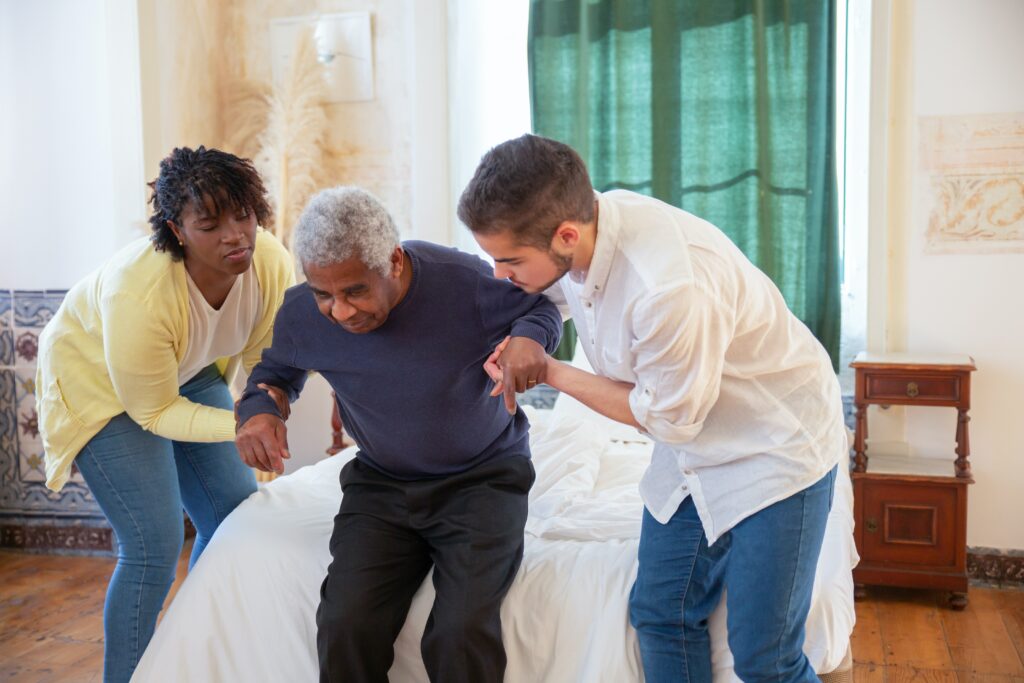Many people, especially from the healthcare industry, often wonder about their duty when acting in an emergency medical situation. For instance, you are an off-duty nurse and you come across someone who has suffered injuries in an accident, is experiencing a medical emergency, or perhaps even pregnant and going into labor.
As a nurse who is qualified to provide adequate support, you may wonder whether you have a legal obligation to provide care in such situations. You should know that you are not legally obligated to provide care to anybody outside of your employment obligations.
Suppose you believe you should offer assistance on ethical grounds. In that case, you may still be worried about your liability if there is a negative outcome from the situation. You should know that Good Samaritan Laws in your state will protect you if you decide to help someone in an emergency as an off-duty nurse. When researching Good Samaritan Laws to learn about your protections while helping in an emergency situation, you may come across the term mutual aid. While similar, mutual aid and Good Samaritan Laws are not the same.
Let’s discuss everything you need to know regarding protection for nurses under Good Samaritan Laws and mutual aid.
Protections for Nurses Under Good Samaritan Laws
The term “Good Samaritan” originates from a biblical story of a traveler who was robbed, assaulted, and left to die on the side of the road. Most people passed by the traveler, not bothering to help until a person from Samaria stopped, and offered assistance in good faith, not expecting anything in return and covering all his expenses.
Today, a Good Samaritan is anyone who offers aid in emergencies to people who need it. Of course, a person helping an individual in good faith may not be able to prevent a negative outcome for the injured person. They might even cause further harm by mistake, despite offering assistance in good faith. In that case, they may fear being liable for causing the negative outcome. However, the state’s applicable Good Samaritan Law should protect the person helping in the emergency.
Good Samaritan Laws can vary from one state to another. However, the most common protections for nurses under Good Samaritan Laws include:
- The person receiving a rescuer’s help must consent to it.
- If the person receiving help cannot make decisions on their own behalf or is unconscious, the individual rescuing them may act assuming they have been given consent.
- If the rescuer believes the person in need requires help the rescuer is not an expert in, like helping with labor when they are not qualified, they should not attempt to perform the action.
- The person offering assistance as a Good Samaritan must provide care only if their help is entirely voluntary. It means they cannot accept any reward or payment for their help.
Good Samaritan Laws can vary regarding a few situations, including:
- In some states, offering medical aid without the right training, like performing CPR on a person without qualifications for it, can make the rescuer liable for any harm that might happen.
- Firefighters, physicians, paramedics, and nurses have ample protection under Good Samaritan Laws in most states but might be liable due to their profession in other states.
- In a few states, rescuers providing care that is not necessary, resulting in more injuries to the person they are helping, may be liable. Suppose a person is stuck in their vehicle after an accident and is not in imminent danger due to factors like a fire or bleeding. In this case, removing them from the vehicle can result in more injuries. The rescuer providing assistance may be considered liable if their help causes more harm to the victim.
Generally, immunity for nurses under Good Samaritan Laws exists if:
- The nurse offering help did not cause further harm to the victim due to ordinary negligence.
- The nurse offering help did not know about medical conditions of the victim they offered care to.
- The nurse did not receive compensation in any form for their help.
- The nurse offered help in good faith.
- The nurse was not responsible for creating the situation where they offered help.
Let’s Take a Look at What Mutual Aid is
There are several ways to describe mutual aid. For the purpose of protection for nurses acting in good faith, mutual aid could be defined as individuals working together to care for each other. Whenever an individual needs help, people participating in mutual aid will offer aid with the larger goal of benefiting everybody.
Mutual aid examples include food pantries offering food for people who cannot afford it or even tech-savvy people assisting older citizens in setting up appointments online. Legal liability issues might not exist in such situations.
Suppose you offered care as a mutual aid participant, but your care did not prevent a negative outcome. In that case, you might wonder will Good Samaritan Laws will protect you from liability.
Guidelines to Follow for the Good Samaritan Law & Mutual Aid

First, you must understand that Good Samaritan Laws are there to encourage people capable of helping to offer assistance without fearing liability. Theoretically speaking, nurses may not offer help if they are concerned about liability issues in emergencies.
When protected under the Good Samaritan Law, nurses benefit from offering care within their scope of expertise, and the victim receives care until emergency responders arrive. A nurse’s help may save the victim’s life. A Good Samaritan Law can offer mutual benefit for the caregiver and victim. One can argue that the Good Samaritan Law should protect a nurse from liability as a mutual aid participant. However, there might be an issue with that.
Suppose a person needing help calls on a nurse for assistance and informs them of the problem and relevant medical history. In that case, the nurse may know a small portion of the victim’s medical history. Because the nurse is aware of the victim’s medical history and still chose to act in an emergency, the nurse may not have immunity under the Good Samaritan Law. The mutual aid approach, in contrast, assumes the nurse would offer help to someone asking for their nursing expertise. It might be unlikely that Good Samaritan Laws might offer the nurse immunity if their care caused further harm to the person who requested your help.
The lack of clarity can be confusing if you feel inclined to help, whether as a mutual aid participant or as a Good Samaritan, and you are worried about liability. Only a court of law can determine whether Good Samaritan Laws can offer protection to mutual aid participants.
Even if the picture isn’t completely clear here, you can follow a few guidelines when faced with a situation where you feel you must offer help as a Good Samaritan or someone participating in mutual aid, including:
- Try to stick to providing care that falls within your scope of practice as a healthcare professional.
- Make sure you combine your expertise as a nurse with common sense when offering assistance.
- Make sure you contact emergency services as needed for the medical situation, regardless of whether you are providing help as a mutual aid participant or as a Good Samaritan.
- Do not accept any form of payment for offering help, not even gifts.
- When emergency responders arrive, share the necessary information for the care you provided.
- Only offer your assistance in good faith.
- Be well aware of the Good Samaritan laws in your state if you ever offer assistance.
As a nurse, you are uniquely positioned to offer help in emergencies to people, even when you are not on duty. Do you want to be more productive on your scheduled time off from work and want to use it to progress your career? You should take nursing continuing education courses like those offered through Fast CE For Less at https://fastceforless.com/ce-courses-for-nursing/. Online nursing CEUs are essential for renewing your nursing license. They also help you learn new skills, allowing you to benefit more people and lead a more successful career in healthcare.



